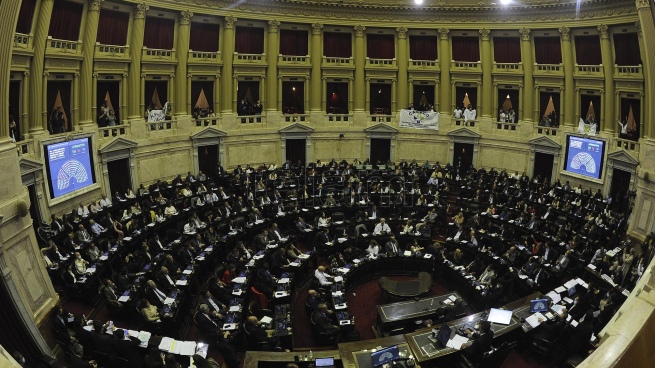The primary deficit registered a fall of 54.9% in July compared to the same month of 2021 in nominal terms, which due to the effect of inflation represented a decrease of 73.6% at constant values, according to a report from the Office of Congressional Budget (OPC).
The public accounts for July closed with a primary deficit of $46,188 million and in the year-on-year fall, the improvement in current income (67.5%) had a particular impact, which exceeded expenses (52.8%).
In turn, the drop in energy subsidies was decisive, mainly due to the application of the second round of tariff increases in electricity and natural gas services.
The OPC data is released a week before the Ministry of Economy releases the report of the Public Sector Cash Basescheduled for Monday, August 22, although there may be differences due to methodological issues.
The July numbers imply an improvement in relation to the results of the first half, in which in each of the six months expenses had a higher year-on-year growth than income.
Likewise, it is expected that the result could be repeated in August, both due to the reduction in the need to import fuel and due to a possible decrease in transport subsidies, after the 40% increase in the rate of passenger transport in the Metropolitan Area of Buenos Aires (AMBA).
The report of the bicameral entity accounted for total income in July of $1.121 billion, primary expenses of $1.167 billion and total expenses (which, unlike the previous ones, include debt services) of $1.289 billion, due to the payment of interest for $122,117 million.
Due to these results, last month ended with a primary deficit of $46,188 million (-54.9% nominal and -73.6% real), a financial deficit of $168,305 million (-3.2% and -43.4% ) and an economic one (current income less current expenses) of $77,690 million (-32.6% and -60.6%).
Energy subsidies amounted to $77,708 million in July, with a nominal fall of 34.6% and a real fall of 61.7%.
Regarding the impact on the fiscal result, based on the data provided by the OPC, it can be inferred that three out of every four pesos of reduction in the primary deficit corresponded to the reduction of energy subsidies: the deficit had a year-on-year drop of $56,224 million. and subsidies in the same period decreased $ 41,111 million.
“It is important to note that during the month of July there were no transfers to Cammesa (Administrating Company of the Wholesale Electricity Market),” said the OPC, referring to the main applicant for subsidies.
Before the implementation of the segmentation, the Ministry of Energy ordered rate increases in two stages for residential services of natural gas and electricity, at a rate of 40% of the salary variation of 2021 for users benefiting from the social rate and 80% for the intermediate level, which resulted in increases for a total of 21.36% and 42.72%, respectively.
Among current revenues ($1.121 trillion), the most important due to their amount were tax revenues, with $702.904 million, which had a nominal rise of 67.5% but a drop of 2% in real terms.
Contributions and contributions to social security were in second place, with $352,424 million (59.7% nominal and -6.6% real).
In descending orderthe main components of current expenses were social benefits, with $683,965 million (66.2% nominal and -2.8% real), personnel expenses, with $128,111 million (93.8% and 13.3 %), economic subsidies, with $124,017 million (-13.8% and -49.6%) and interest, with $122,117 million, which represented a nominal increase of 70.9, without variation in real terms.
In the accumulated of the first seven months of the year, the primary deficit reached $1,538 trillion, with a nominal year-on-year rise of 172.4% and real of 71%, while the financial deficit was $2,202 trillion (124.7% and 41.1%).
The impact of energy subsidies it was of such a magnitude that, despite the fall recorded in July, in the first seven months they amounted to $922.17 billion, with a nominal increase of 95.6% and a real increase of 22.8%.








